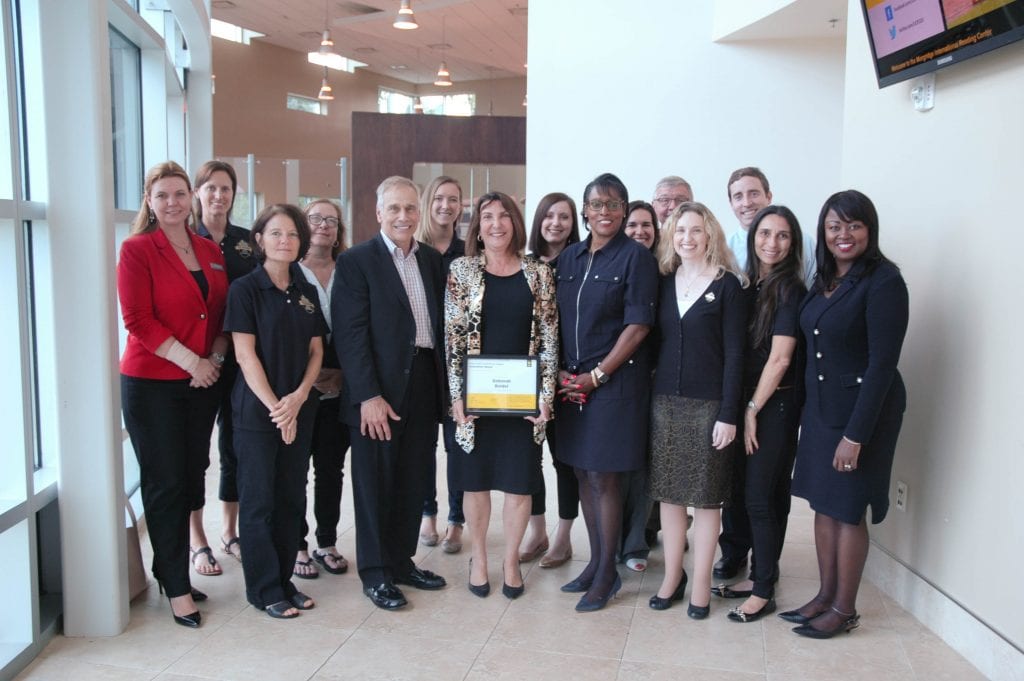Helping the Helpers

If you build it, they will come.
This isn’t the saying that comes to mind when thinking of a facility dedicated to treating anxiety, trauma and PTSD. But it’s been the case for UCF RESTORES, a one-of-a-kind clinic founded by Deborah Beidel, Ph.D., in 2011.
“How do you get over a fear of driving? You have to drive,” said Beidel.
That’s the mentality applied in the intensive outpatient format she and her staff use. Using virtual reality, patients are confronted with triggers from combat. They see bombs detonate, smell smoke and experience gunfire. It takes them back to the front lines in Iraq or Afghanistan, but instead patients are safely on UCF’s campus.
The patients experience the virtual-reality therapy five days a week for three consecutive weeks—a format avoided in the past for its intensity. It’s a stark contrast from what’s the norm in PTSD therapy. Combined with daily group-therapy sessions on anger management, depression and socialization, the results speak for themselves.
Sixty-six percent of the first 100 patients treated at UCF RESTORES no longer had symptoms of PTSD after the three-week treatment, and six months later, only one patient had relapsed. Only 2 percent of patients dropped out of therapy.
“We have military personnel seeking us out from not only all-around Florida, but all over the U.S.,” said Beidel. “One veteran literally used his last dollar to buy a plane ticket to come to Florida. He walked to our clinic from the airport. If that doesn’t show we’re providing a needed service, I don’t know what would.”
On June 12, 2016, hours after a gunman walked in Pulse Nightclub, killing 49 people and injuring more than 50, the Orlando Fire Department called UCF RESTORES: We need you down here right now.
Throughout the next week, UCF RESTORES staff conducted debriefings for the general community and for first responders. As the need for expanding and improving services grew, Beidel partnered with Clint Bowers, a fellow Pegasus professor and national expert in the area of training science, to expand treatment for first responders, including educational workshops on peer-support training.
The clinic now has a treatment program for first responders and mass shooting victims. So far, the clinic has helped 100 first responders and dozens of victims of traumatic events, including shooting survivors of Pulse, Las Vegas and Parkland, Florida.
“We want to give people their lives back,” says Beidel. “The trauma memory won’t go away, but it shouldn’t dictate every aspect of their life. And we will be here until no one else needs us.”
The clinic’s research has earned national praise and support, including receiving part of the largest alumni gift and being named the winner of the Spring 2018 Marchioli Collective Impact Innovation Award for creating community impacts through partnerships. Learn more about UCF RESTORES.
